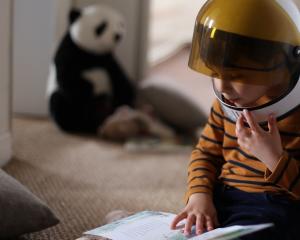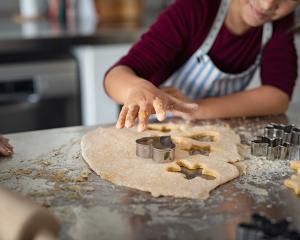
Giving your child space is important for their independence, parenting columnist Ian Munro writes.
Slam! Some time between 12 and 14 years of age you'll find that the door of your teenager's room that's always been open to the world will now be firmly closed.
You could even find one of those warning signs hanging from the door handle about what will happen to anyone who dares to enter.
This dire threat is likely to be aimed in particular at any sibling who, over the years, has become used to just drifting in and out.
Or worse, has come to borrow. "Leave my stuff alone!''
However, it will also be aimed at Mum and Dad. "Don't come in without knocking!''
Just what is suddenly going on behind that door that wasn't before? Why do you get the impression that you have interrupted something when you do enter? Is our teen up to no good? Is our teen depressed and trying to shut out the world?
It can be quite disconcerting for all, but also quite natural. It's just another part of that movement towards independence and development of "me the person'' as against "me the son or daughter of''.
"It's my room. It's my mess.''
And it's not only a need for the physical space but also a need for emotional space.
A teenager's room can be something of a sanctuary for thinking, for losing themself in music or books, for licking wounds. "Just leave me alone.''
In respecting this newfound demand for privacy it's not a bad idea to establish some ground rules.
Don't enter without knocking and waiting a moment. But do make a habit of doing this at least once each evening, even if only to say goodnight.
Younger teens might require more visits to ensure lights are out, homework's done and so on.
Don't undertake a secret search unless you have genuine reason to suspect you should check on something like illegal activity or a family safety issue.
And if you are caught out, don't deny it, but be able to give a good reason for doing so.
Meals will be eaten with the family and not in the bedroom. Set an acceptable noise level for music if a headset is not being used.
There will be rules around computer use and access if it's hidden behind a closed door.
Rooms will be maintained at an agreed level of cleanliness (as against tidiness).
Closed doors are great for hiding untidy rooms. You might even close the door yourself.
Have an agreed clean-out day when there should be no dirty clothing, towels, plates and cutlery, empty food containers and packaging are cleared and the rubbish bin will be emptied.
And, finally, while their door may be closed, always keep your "door'' open.












